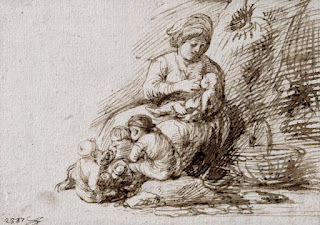Happy Earth Day
Come join us Saturday, April 25th for the Earth Day Festival at Howard Park from 11-3.
Breastfeeding Mothers Give Mother Earth A Hand on Earth Day
Schaumburg, IL (April 2002)--What is the one thing only mothers can do to help reduce landfill waste, preserve valued energy, and help prevent deforestation? Breastfeed their children. As people from around the globe commemorate "Earth Day," human milk remains the ultimate natural renewable resource and perhaps the most overlooked way of helping to create a healthier planet.
Human milk requires no resources for packaging, shipping or disposal. The production and disposal of artificial baby milk products add to our environmental problems by consuming energy and producing waste. The 550 million tins of formula sold in the United States alone placed end to end would circle the earth one and a half times. The production of artificial baby milk in the USA each year produces 86,000 tons of tin and 1,230 tons of paper labels which add substantially to the landfill waste.
Breastfeeding preserves valued energy. No energy is wasted producing human milk the way it is wasted when producing artificial baby milk. Precious fuel is used to transport the ingredients of formula and the baby milk products themselves. Energy is used for sterilizing bottles and refrigerating them.
The environment also pays a price for growing soybeans or raising cattle to produce the artificial baby milk. Clearing land for pasture results in deforestation, which then results in land depletion and soil erosion. Growing soy requires fertilization and irrigation.
Exclusive breastfeeding is a natural child spacer. The contraceptive effect of exclusive and unrestricted breastfeeding offers 98% protection against another pregnancy in the first six months. In many women, continued breastfeeding will postpone return of fertility for a year or longer.
While breastfeeding is a wondrous act of nurturing between a mother and child, it also has an enormous impact on the global ecosystem. Breastfeeding not only grows a healthy mother and child but also grows a healthier planet.
Although we live in a polluted world, scientists agree that human milk is still the very best food to nourish our babies, and it may even protect babies from some of the effects of pollution.
To find out more about why human milk is "green," i.e., the healthiest and most ecologically sound way to nurture babies, or for breastfeeding information and support, contact La Leche League International by visiting our award winning website at www.lalecheleague.org or calling 847-519-7730. Since 1956, La Leche League International has been providing breastfeeding assistance through mother-to-mother support, education and information.
Breast Milk Is Green *
(*Ecological)
It's a natural, renewable resource and is all the baby needs for the first six months of life.
It requires no resources for packaging, shipping or disposal.
No precious energy is wasted producing artificial baby milk and related products.
No land needs to be deforested for pasture or crop production.
It does not create pollution from the manufacturing of human milk
substitutes, bottles, teats, and cans.
It helps space babies by suppressing fertility in the mother.
This message is brought to you by:
La Leche League International
957 N. Plum Grove Road
Schaumburg IL 60173
847-519-7730
Visit us at our award-winning website at www.llli.org
